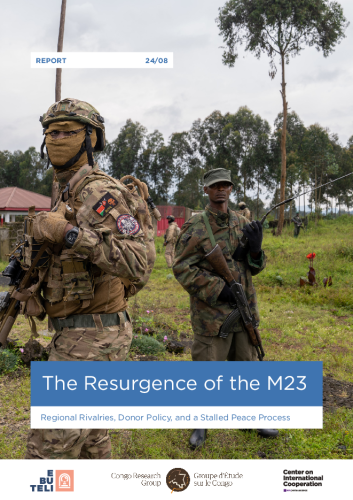In November 2021, the M23 rebellion resurfaced in the province of North Kivu, in the east of the Democratic Republic of the Congo (DRC). Since then, it has displaced around 1.7 million people, exacerbating the humanitarian crisis. Although dozens of other armed groups are fighting in the country, the M23 has become the focus of geopolitical rivalry between the DRC, Rwanda, and Uganda and the object of much attention from the Congolese government, so much so that it is difficult to imagine any progress towards peace in the country without dismantling this rebellion.
This report argues that the main impetus for this M23 resurgence lies outside the DRC. The weakness of the Congolese state has aggravated the crisis, which also has deep roots at the local level, but the M23 has, above all, appeared as a means for Rwanda to project its influence against its northern neighbor, Uganda. Even after the two countries resumed relations in early 2022, Rwandan support for the M23 continued as the group grew. The Congolese government’s reaction has exacerbated this crisis. Frustrated by its army, which is riddled with clientelist networks, the government has resorted to private security firms and collaboration with foreign and local armed groups. As these groups and the M23 recruit on an ethnic basis, community tensions have risen, and attacks on civilians have multiplied.
This note analyzes the M23 in historical, national, political, and regional contexts. It explores why Rwanda supported the rebellion, why the Congolese response was ineffective, and what influenced the international reaction.
The report has three parts:
- The history of the rebellion from 2012, focusing on the most recent period.
- An analysis of the actions and interests of the various players to better understand the ongoing crisis.
- Political considerations.
